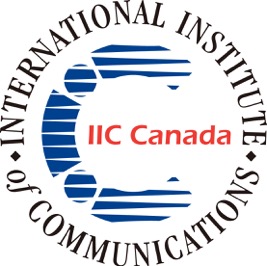
And have we reached the end of the era of broadcasting and telecom regulation?
OTTAWA – Donald Trump has become the poster child for lobbing accusations of fake news against the mainstream media before and since moving into the White House – and will likely continue to wear that mantle as he and his fellow Republicans seek to maintain their majority in the U.S. Congress following next week’s midterm elections.
Notwithstanding the U.S. president’s political posturing, the issue of fake news on social media sites was raised by lawmakers on both sides of the Atlantic on Wednesday when Bob Zimmer, chair of the House of Commons Standing Committee on Access to Information, Privacy and Ethics, and Damian Collins, chair of the British House of Commons Digital, Culture, Media and Sport Committee sent Facebook CEO Mark Zuckerberg a letter requesting that he testify on November 27 before a special joint Canada-U.K Parliamentary hearing at Westminster on what “measures Facebook is taking to halt the spread of disinformation on [its] platform.”
However, giving major global social media companies, such as Facebook, the ability to self-police content would equip them with “unaccountable powers over censorship,” warned American media and internet expert Eli Noam at a panel discussion on regulation held in Ottawa on Wednesday as part of the annual conference of the Canadian chapter of the International Institute of Communications.
Germany’s Network Enforcement Act, or NetzDG, requires social networks to deal with complaints related to unlawful content and has become a global legislative testbed as to whether major players, such as Facebook and Twitter, are – or should be – able to differentiate between free speech and content that is threatening, defamatory or hateful. Since the law came into force at the beginning of the year, Facebook received 1,704 complaints and removed 362 posts found to be offensive as of June.
“It will become a system in which everyone has a veto power over what can be seen or read – and that is not a good system in a free society,” said Noam, a director of the Columbia Institute for Tele-Information and the Garrett Professor of Public Policy and Business Responsibility at Columbia Business School in New York City.
“Should government regulate bad speech? That’s basically a euphemism for censorship.”
He described fake news as “usually something you don’t like, and the criteria for having government agencies being in the business, either directly or indirectly, in verifying what information is acceptable and what is not, is deeply anti-democratic.” This, emphasized Noam, is particularly problematic when a government is accused of being “illegitimate” or brought to power through an election that has been “manipulated,” as Trump’s presidency has been tainted by allegations of Russian interference and Facebook data-tampering by political consultancy Cambridge Analytica and others.
“Then you turn around and give to the same government the power to look over and control the flow of information is quite dangerous. Sometimes the solution is worse than the problem. If you have a control mechanism of what is hate speech and what is fake news, you’re just going to dig yourself deeper and deeper into problems,” said Noam.
“Once you start giving government the regulatory powers to determine what is bad information, would you apply the same thing to the print media – or to someone spouting nonsense on a street corner?” – Eli Noam, Columbia School of Business
However, he acknowledged that there needs to be restrictions in extreme cases, such as the distribution of child pornography and “speech that is directly threatening people’s safety – not their emotional safety but their physical safety.” However, that activity is already prohibited under criminal law and requires no further regulation, Noam (who was the most talkative panel member) noted. “Once you start giving government the regulatory powers to determine what is bad information, would you apply the same thing to the print media – or to someone spouting nonsense on a street corner?”
He said that one solution is a walled garden that controls user access to web content.
Another solution would be to create “information commissions” rather than expand the mandate of regulatory agencies, such as the CRTC. Such commissions could hold further prominence by holding ministry-level status within a government, Noam explained.
“Traditional telecom and broadcast regulations seemed to us so complicated in the good old days,” he said at the panel discussion that also included communications regulators from France and Taiwan, and a telecom and media regulatory expert from Austria. “But now we will look back at it when times were simple, because we’ve now added so many issues: online video, fake news, hate speech, algorithms, cyber-security, digital financial services and crypto this and that, net neutrality, technology-industrial policy, privacy, transparency, trade, intellectual property, and so on and so forth.”
“Can this be handled by the traditional system? My conclusion is that it just can’t. The existing regulatory system is simply geared to the older issues, and not the new ones that are emerging.”
Georg Serentschy, who runs a Vienna-based advisory-services firm for the internet, telecom, media and technology sectors, believes that existing telecom regulation has reached its end.
“It means that competition law and policy can deal better with regulatory problems than traditional regulation can do,” he said, adding that he would like to see regulators given a “new mission profile” building on their “market knowledge.”
Noam said he had hoped that regulation would “fade away” once competition eliminated monopolies. “But clearly that’s not happening as new issues are emerging, and we’ve got to deal with them at the speed at which they are occurring.”



